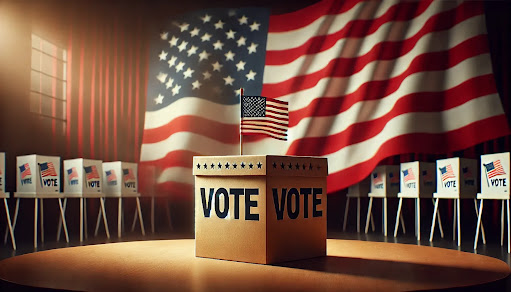The Evolution of Presidential Elections in the United States: A Journey Through Time
The presidential election is a cornerstone of American democracy, embodying the spirit of the nation’s founding ideals. What began as an experiment in governance over two centuries ago has evolved into a complex, highly scrutinized process that not only shapes the lives of Americans but also sets the tone for global politics. Let's explore the history of presidential elections, the changes over time, notable controversies, and their enduring significance in American life.
The Beginning of Presidential Elections
The United States held its first presidential election in 1788-1789. George Washington, revered for his leadership during the Revolutionary War, became the nation's first president, effectively unchallenged. At the time, the process was markedly different from what we see today. The framers of the Constitution established the Electoral College as a compromise between electing the president by Congress and direct popular vote. State legislatures often appointed electors, and there was no uniformity in the voting process.
In the early elections, there was little to no campaigning as we know it today. Instead, candidates relied on their reputations and endorsements from influential political figures. The political party system had not yet taken root, and candidates were chosen more by consensus among the elite than by broad public support.
The Evolution of Electoral Practices
As the young republic matured, so did its electoral practices. By the 1820s, the rise of political parties—most notably the Federalists and Democratic-Republicans—transformed presidential elections into vibrant, and sometimes contentious, contests. The election of 1824, dubbed the "Corrupt Bargain," epitomized these changes. John Quincy Adams was elected president by the House of Representatives after no candidate secured a majority in the Electoral College, despite Andrew Jackson winning the popular vote. This controversy led to the development of a more organized party system.
By the mid-19th century, the expansion of voting rights to white men without property broadened electoral participation. The introduction of conventions to select party nominees and the growth of campaign rhetoric further engaged the public. However, systemic disenfranchisement of women, African Americans, and other marginalized groups persisted, significantly limiting the democratic promise of elections.
Modernizing Elections: Technology and Transparency
The 20th century brought sweeping changes to the electoral process. The advent of radio, television, and later the internet revolutionized how candidates communicated with voters. The introduction of primary elections gave the public a more direct role in selecting party nominees, and the Voting Rights Act of 1965 sought to eliminate discriminatory practices that suppressed minority participation.
Today, elections are a blend of tradition and modernity. Early voting, mail-in ballots, and electronic voting have made the process more accessible to many. Yet, challenges remain, from concerns about voter suppression and gerrymandering to debates over the integrity of electronic voting systems.
Scandals and Controversies: A Storied History
Every presidential election leaves its mark on history, and scandals have often taken center stage:
- 1800: The bitter race between Thomas Jefferson and John Adams resulted in a tie between Jefferson and Aaron Burr, decided only after 36 ballots in the House of Representatives.
- 1876: The contested election between Rutherford B. Hayes and Samuel Tilden saw allegations of voter fraud and suppression, ultimately resolved by the Compromise of 1877.
- 2000: The Supreme Court’s decision in Bush v. Gore, halting a Florida recount, underscored the fragility of the electoral process in a tightly contested race.
- 2016: Allegations of foreign interference and questions about email practices dominated the election between Donald Trump and Hillary Clinton.
- 2020: Claims of election fraud, despite being widely debunked, led to unprecedented challenges to the electoral process and culminated in the January 6th Capitol insurrection.
These controversies underscore the high stakes and deep emotions tied to presidential elections, revealing both the strengths and vulnerabilities of American democracy.
Why Presidential Elections Matter
Presidential elections are more than a political exercise; they are a reflection of the nation's soul. Each election brings the potential for sweeping changes in policy, governance, and national direction. Franklin D. Roosevelt’s New Deal transformed the social safety net during the Great Depression, while Ronald Reagan’s presidency ushered in an era of conservative economic policies.
Beyond policy, elections reinforce the fundamental idea that power lies with the people. They remind Americans of their role in shaping the future, making the act of voting not just a right but a duty.
An American Tradition
Voting in presidential elections is a time-honored tradition, imbued with significance and pride. It is a collective moment when Americans, despite their differences, come together to decide their shared future. To cast a vote is to participate in a legacy that began with the nation's founding—a legacy that has weathered wars, civil strife, and countless challenges.
For those elected, the honor of serving as president carries immense responsibility. They are entrusted by the people to lead with integrity, vision, and commitment to the ideals of liberty and justice.
Conclusion
Presidential elections have come a long way since George Washington’s time, evolving alongside the nation itself. They remain a testament to the enduring strength of the American democratic experiment, even as they face new challenges. As voters step into the polling booth—or mail in their ballots—they partake in a vital tradition, affirming that the power of government rests in the hands of the people.
The journey of presidential elections is a story of adaptation, resilience, and hope. It is a reminder that every vote matters and that the act of voting is both an honor and a solemn duty in shaping the course of American history.




Comments
Post a Comment